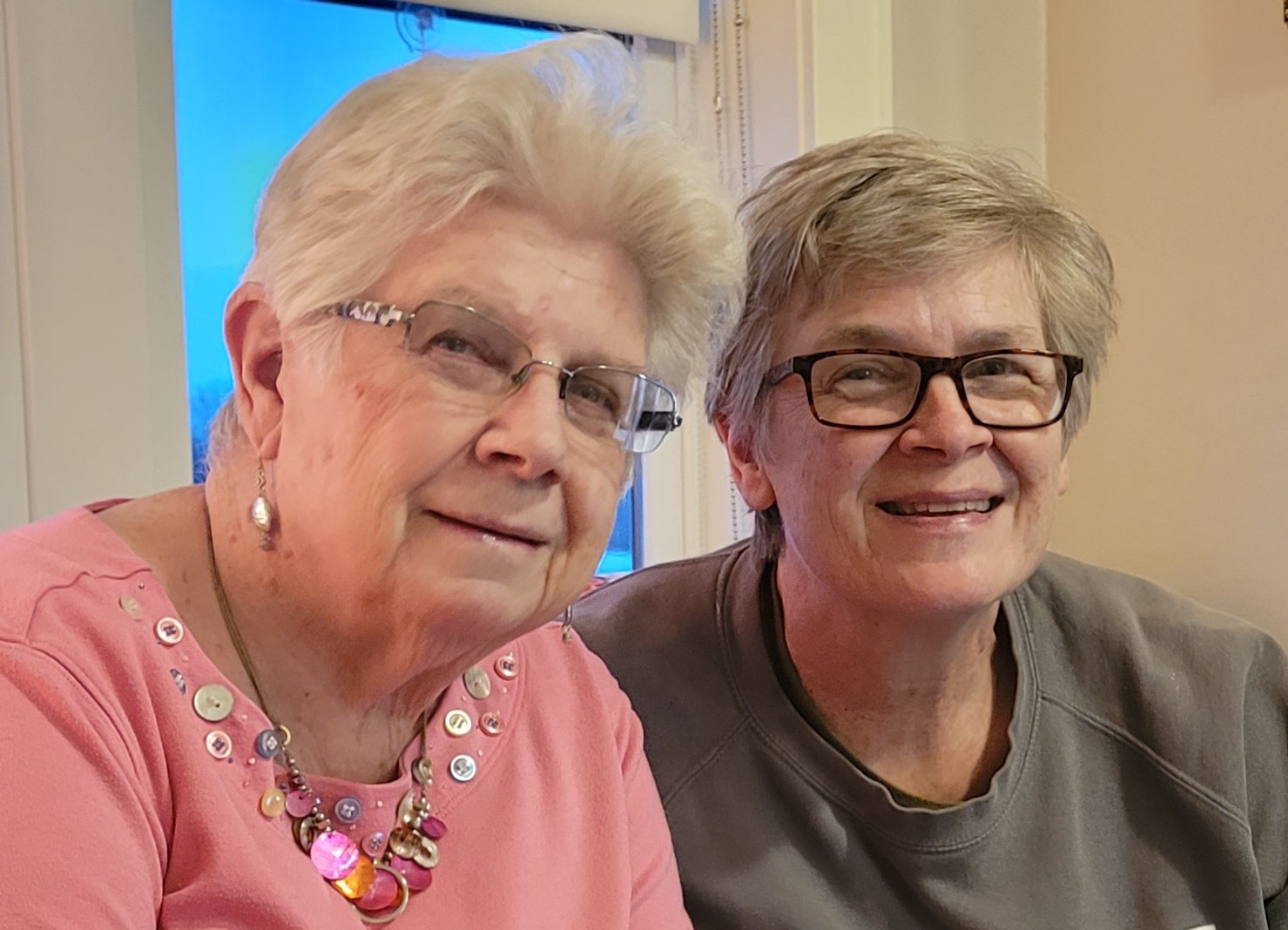Conversations in Grief Blog: When the Loss is Unclear
When the Loss is Unclear
by Laura Wessels
 Rainbow Bereavement Coordinator/Chaplain Laura Wessels is shown with her mom, Gertrude.
Rainbow Bereavement Coordinator/Chaplain Laura Wessels is shown with her mom, Gertrude.
Two wives care deeply for their brilliant husbands, who now have dementia. Minds that were once sharp and capable of solving complex problems have been lost to the disease. The wives now find themselves as confused as their husbands. Both women recognize that what they are experiencing is different than simple grief. According to Lisa Wold, a Licensed Professional Clinical Counselor, “When someone experiences the death of a loved one, the loss is clear and concrete.” In contrast, for these wives who are now caregivers, their loss is neither clear nor concrete. It is an ambiguous loss. This term was coined by Pauline Boss, a University of Minnesota professor and clinical practitioner, who describes it as “a loss that remains unclear and without resolution.”
In other words, those experiencing ambiguous loss struggle to identify what is happening. When your loved one has a form of dementia, they may still be physically present, but the person you love is gone. Dementia has warped their personality. Their face is the face you know, a face you still hold and kiss. They wear the same clothes they have always worn. In many other ways, they have become a stranger to you. They may not be able to keep themselves clean. Their personality may have shifted from confident and friendly to unsure and confused. Maybe they have lost the ability to communicate. Their words maybe have become garbled and no longer make sense, or they are completely silent. You find yourself caring for someone who is still there yet profoundly is not there at all. In fact, one of the wives referred to herself as a widow already.
The women who are caring for their husbands with dementia wanted a name for what they were experiencing. Boss explains, “Understanding that some losses are utterly senseless, and always will be, gives us the permission and freedom to let go of searching for the perfect solution. We begin to accept the paradox, find meaning in even meaninglessness, and hope in what we thought was hopeless. Increasing our tolerance for ambiguity and unanswered questions frees us from the burden of needing to close the door on loss.”
By naming your experience, you can validate the truth of your journey. Identifying the missing edges of your loss is a helpful place to start as you cope with the ambiguity. As you honor the grief you are already experiencing, it may be helpful to journal your experience of caring for your loved one. Writing may give you clarity as you identify both the joyful moments (like when he laughed at your singing) and the painful declines (such as when you tried to hug him, and he pushed me away). You might also write a poem of sorrow or lament, listing what you have lost and expressing your longing for a different present and future.
On the other hand, make sure to celebrate the small connections you share with your loved one. My mother had lived with Alzheimer’s disease. She was also a talented pianist and organist and sang beautifully with a lovely alto voice. We found connection through music, singing hymns together. Even when I forgot the words, my mom would remember and lead us in completing a verse. In those moments, I saw my mom. I also experimented with ways to engage with her in simple activities. We watched old Disney movies. I tried coloring with her, but that did not work for Mom. Then I discovered that our library offered dementia activity kits that could be checked out. We looked at recipes, and she matched ingredients with their corresponding pictures. We painted with watercolors. These were moments of simple and meaningful connections.
Another woman understood that her role shifted from spouse to caregiver. She continued to love her husband, but her love changed as his devoted caregiver. As you embrace this loss without edges, loving your person in new ways, hold on to these wise words from Kate Bowler, a professor, bestselling author, and award-winning podcast host: “You’re not doing it wrong; you’re doing something hard.”